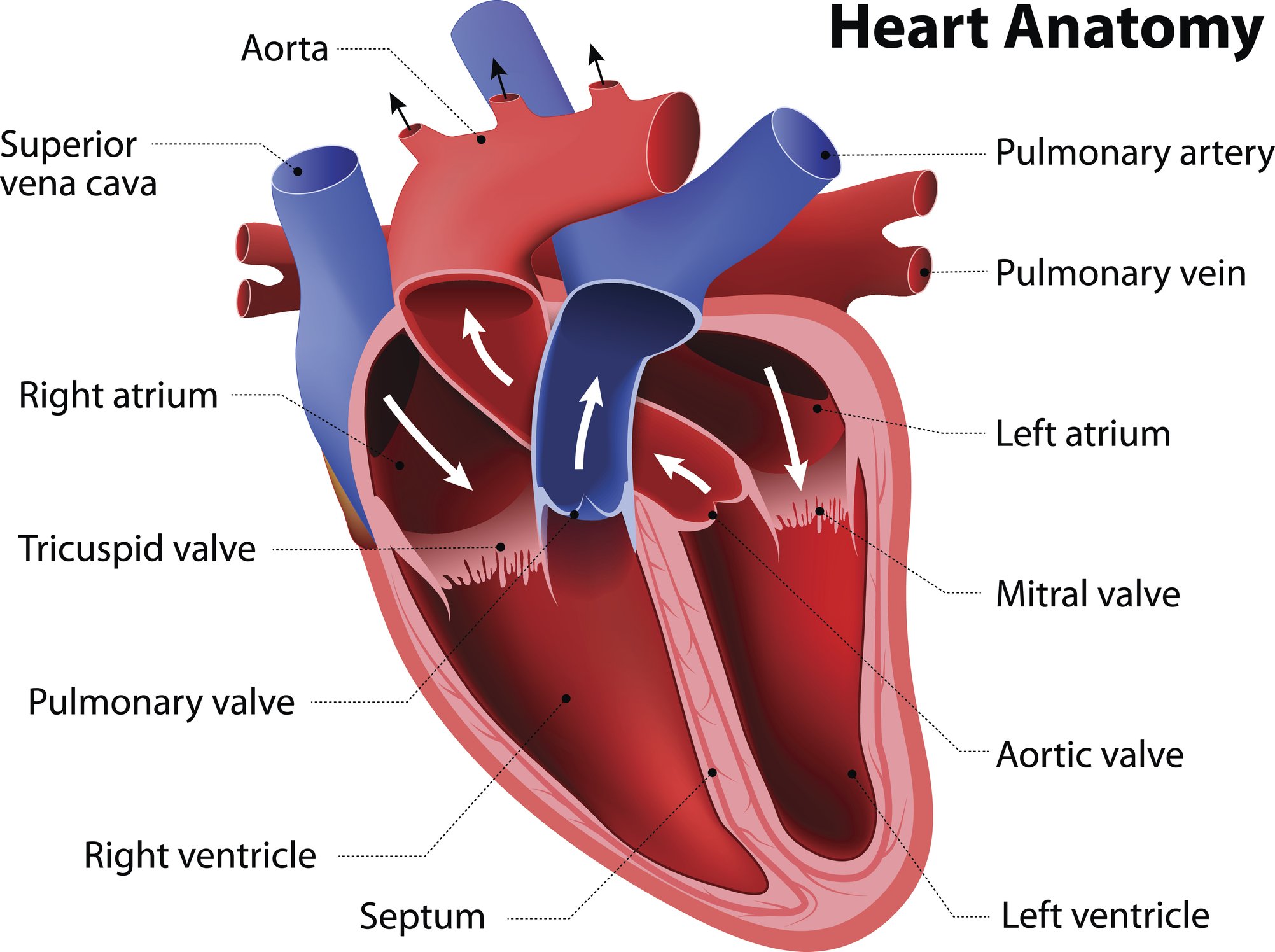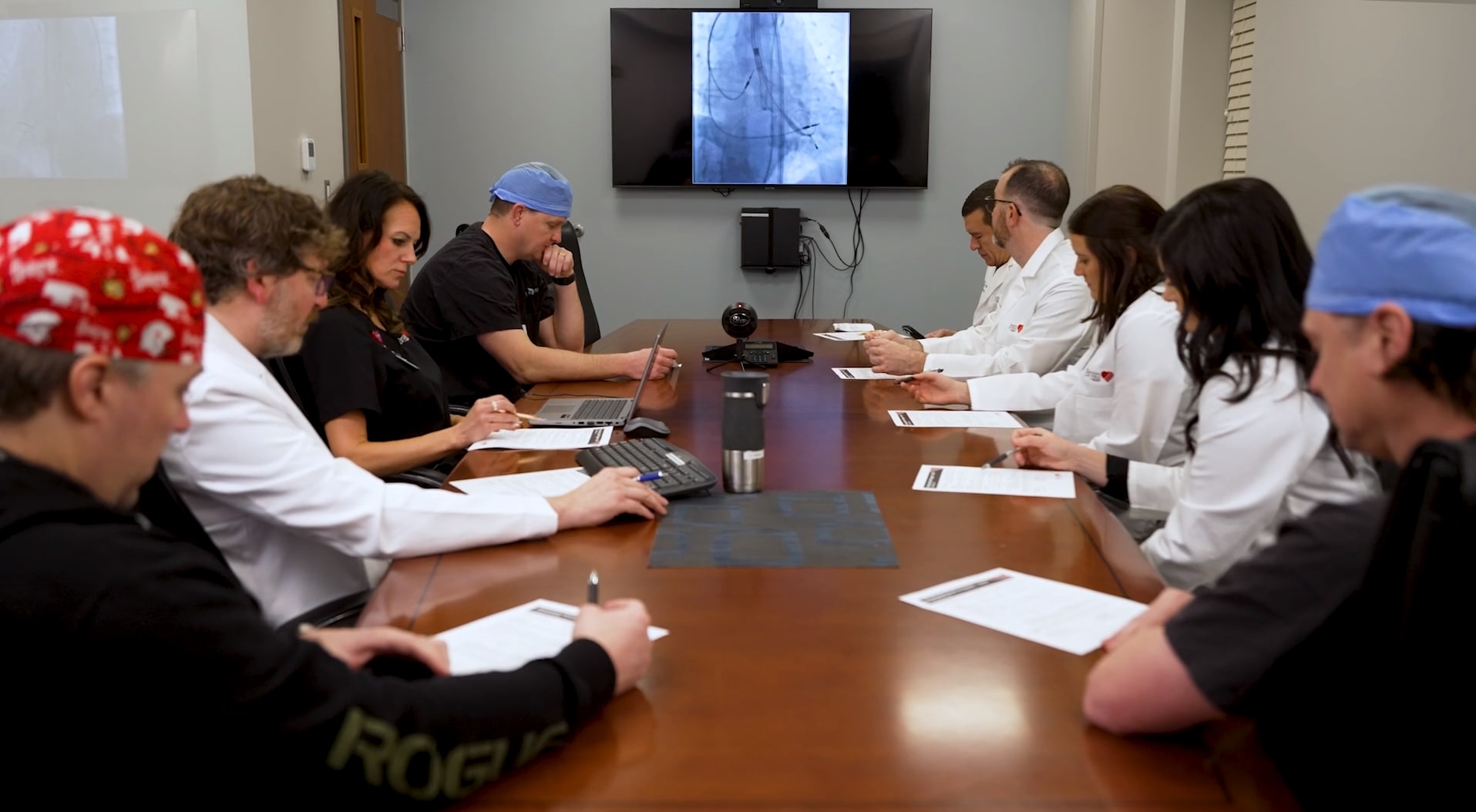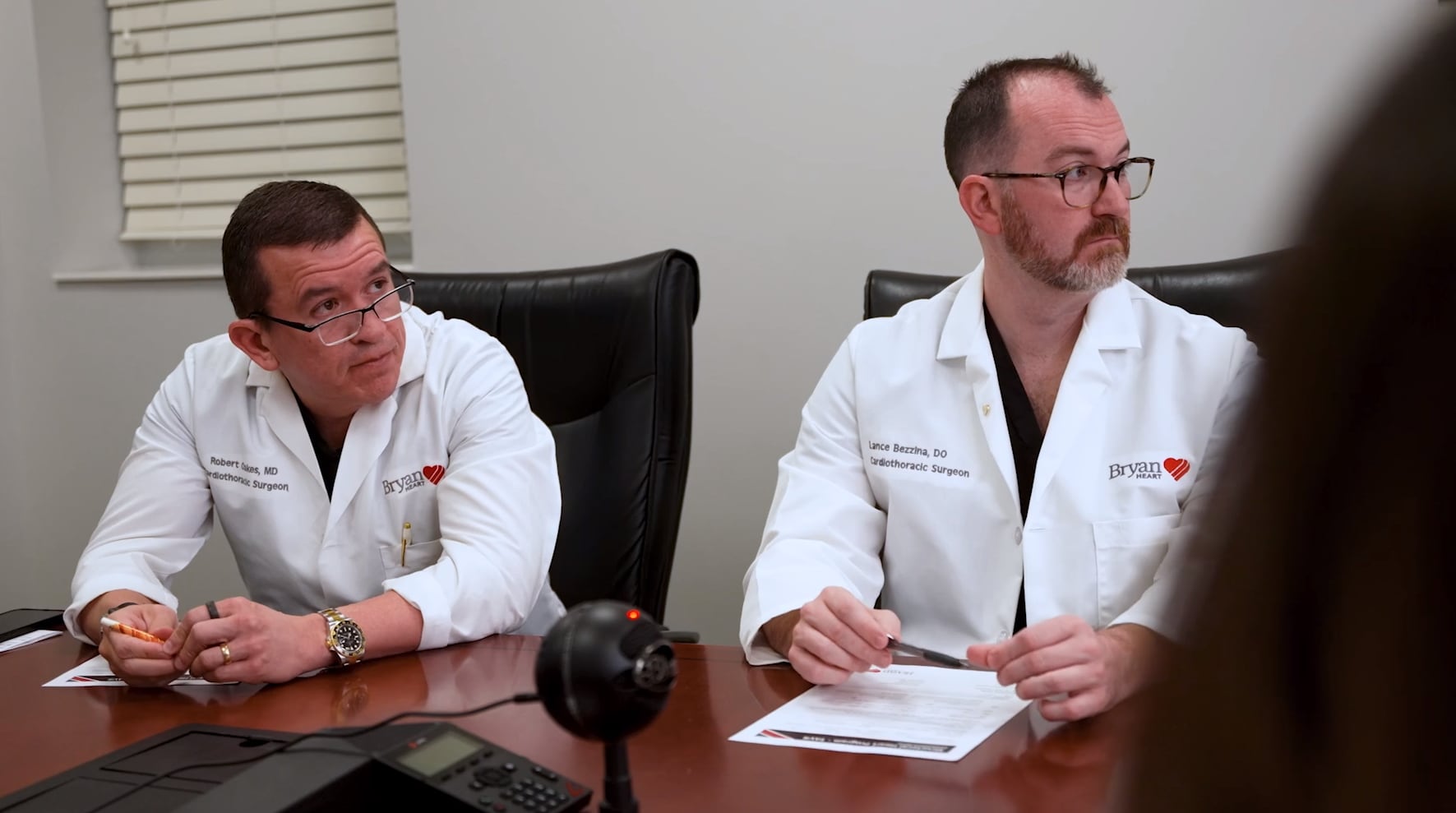Structural Heart
Most often if you experience heart problems, these problems generally fall into at least one of three categories:
- Issues with the blood vessels supplying blood to the heart
- Issues with the rhythm of your heart, either beating too fast or too slow
- Issues with the structural makeup of your heart causing it to not pump blood like it should
Structural heart diseases and conditions are specifically related to the heart’s –
- Four valves: aortic, mitral, pulmonary and tricuspid
- Walls
- Four chambers: right and left atriums (top chambers), right and left ventricles (bottom chambers)

Structural heart conditions can be something that you are born with, also known as congenital, or something that can develop over time.
Your overall health and lifestyle can increase your chances of developing a structural heart disease or condition. For example, high blood pressure, plaque build-up within your arteries, certain medications, or having had a previous heart attack, rheumatic fever, endocarditis, cardiomyopathy can all increase your chances for structural heart issues later on in life.
Structural Heart Program Specialization
Bryan Heart has a multi-disciplinary team devoted to everything related to your heart's structure:
- Nurses – program coordinator and dedicated nurse navigators
- Advanced practice providers – program coordinators
- Invasive cardiologists
- Interventional cardiologists
- Cardiothoracic surgeons


Together, these specialists work to develop the best treatment for each person's diagnosis. Our dedicated structural heart team specializes in treating heart disease or conditions that affect your heart’s valves, walls, chambers or muscles.
Bryan Heart works with other physicians and cardiology programs throughout the region in treating structural heart issues. Many procedures are available through our structural heart program. Some of the most common are:
- Patent Foramen Ovale (PFO) or Atrial Septal Defect (ASD) Closure
PFO is a small defect that everyone is born with. However, in roughly 20-25 percent of people it doesn’t close. Usually this doesn’t cause problems, but it could cause a stroke. Normally, if a small blood clot went to the heart it would get “stuck” in the lungs and the body would clear it out. In the case of a PFO, it could cross over into the left side of the heart, possibly flow to the brain, and cause a stroke.
Patients who are referred to the structural heart program undergo further testing and evaluations to determine if a procedure is right for you. The Bryan Heart structural heart team will help you and your loved ones along the way, providing care options that best fit your needs.